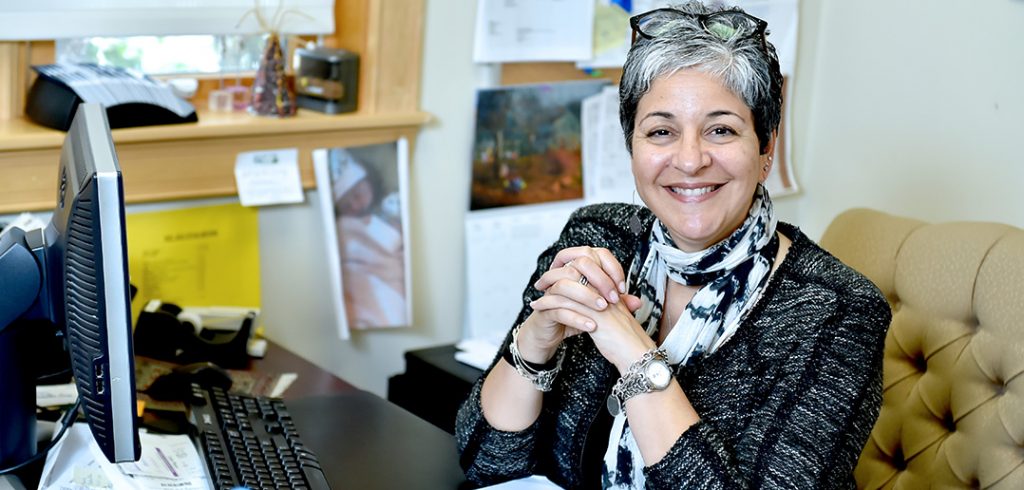During half-hour time slots throughout the day at My Second Home—an adult day program in Mount Kisco, New York—seniors have their spirits lifted by visits to the neighboring child-care center. The children visit the seniors, too. They call them Grandma or Grandpa and develop relationships with adults who may be struggling with memory loss or physical disability.
“The kids look up to the adults, and the seniors will take the children under their wings,” says Karen Bianca Bisignano, GSS ’12, the director of My Second Home, a community-based alternative to nursing homes or the high cost of supported living centers. “Bonds are formed.”
The directorship at My Second Home was Bisignano’s breakthrough job in social work, the field she decided to enter in her mid-40s after a successful 25-year career developing visual effects for commercial and feature films.
She studied for her master’s degree at Fordham’s Graduate School of Social Service in a part-time program that convened on Saturdays for four years. After she earned her degree, she lost her job at the production company and her mother became ill. She helped out with her mother’s care and landed a job at Fordham, helping coordinate the online MSW program.
“That’s when the heavens opened up and the sunrays were shining down,” Bisignano recalls. She’d first heard about My Second Home when she took a Fordham course, Death and Dying, taught by Rina Bellamy, GSS ’05, an adjunct professor who had interned at the intergenerational program as a student and became its director in 2007. Last spring, when Bellamy left My Second Home to work in a hospice program, Bisignano was hired.
“I remembered her from class,” says Bellamy, now a hospice social worker at the Visiting Nurse Association of Hudson Valley. “We share the same vision: that until the end of life, no matter what happens during their lifespan, people should have dignity, respect, and self-determination.”
The program features activities throughout the day to provide stimulation, conversation, and some fun for the senior citizens, many of whom suffer from Alzheimer’s disease. Activities include arts and crafts, visits by a therapy dog, singing, and dancing.
“Music remains deep in the memory, and playing it helps give them a dignified, enjoyable, social day,” Bisignano says. “It’s so important for those with cognitive impairments to be participatory and social, and not isolated and depressed at home.”
—David McKay Wilson

